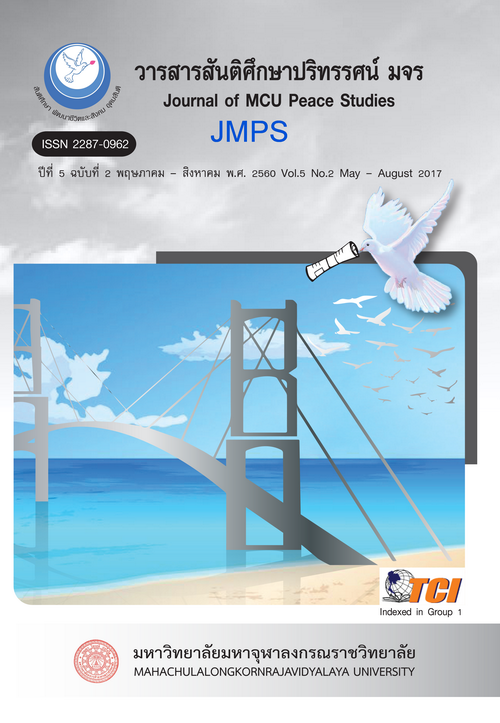Non-Violence and Conflict Management by Non-Violence
Main Article Content
บทคัดย่อ
The objective of this study is to develop a better understanding about non-violence and conflict management by non-violence approaches. This study is a documentary research which numerous related documents are analyzed. Such document has been reviewed, classified, and summarized systematically. The study is divided into four main parts: conflicts, non-violence, concepts of non-violence, and non-violence approaches. Today, many conflicts and an insurgency in southern Thailand have caused negative impacts to local residents and people in the conflict areas. It is known that dealing with conflicts, the most powerful and peaceful is non-violence approaches. This study has proposed nine non-violence approaches. These include completely refuse for all violence; tackle on problems; not individual; create good relationship; cooperation; response to all sides; humanity; focus on rationale and sensitivity; and courage and creativity. According to conflict management by non-violence, nine methods can be applied. These are mediation, negotiation, arbitration, legislation, dialogue, cross cultural mediation, inquiry, non-cooperation, and civil disobedience. With proper selection of using non-violence approaches and appropriate methods, it is believed that most conflicts can be solved with non-violence approaches by all related parties.
Article Details
ทัศนะและความคิดเห็นที่ปรากฏในบทความในวารสาร ถือเป็นความรับผิดชอบของผู้เขียนบทความนั้น และไม่ถือเป็นทัศนะและความรับผิดชอบของกองบรรณาธิการ ยินยอมว่าบทความเป็นลิขสิทธิ์ของวารสาร


